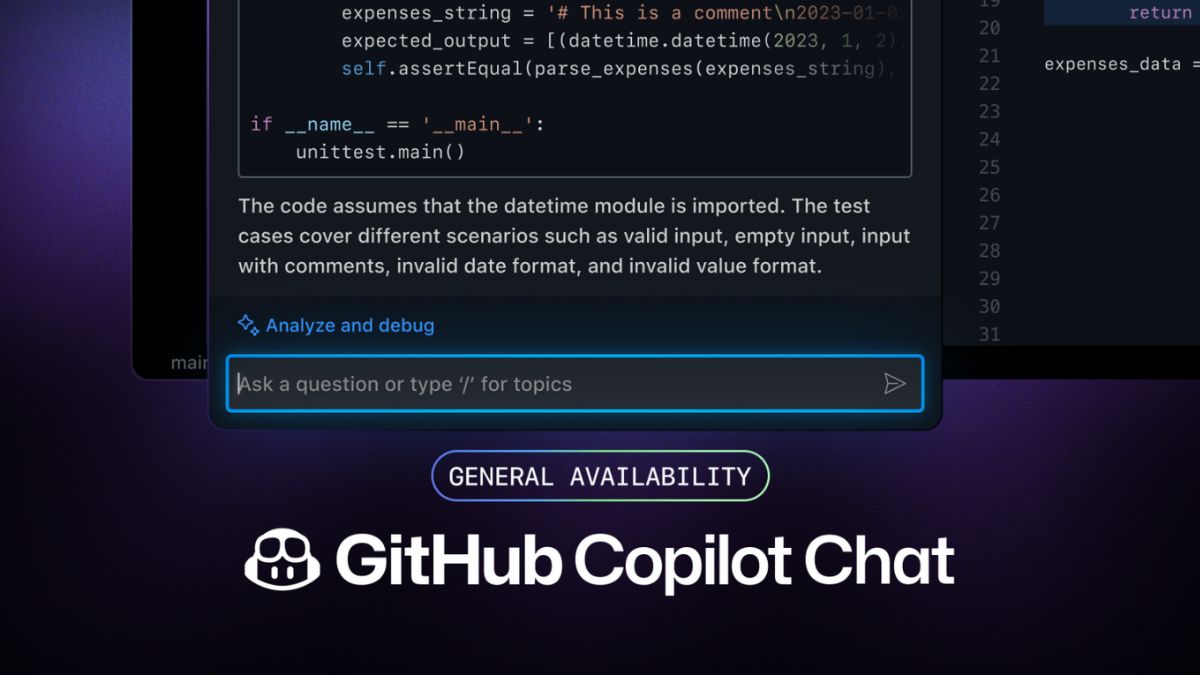- By Vikas Yadav
- Sat, 30 Dec 2023 01:01 PM (IST)
- Source:JND
GitHub announced Copilot Chat, a programming-centric AI model, earlier this year for developers and organisations (available via Copilot for Business). Soon after the individual beta testing via a $10/month plan, the chatbot is now available for users generally. It is available in the sidebar in Microsoft's IDEs, Visual Studio and Visual Studio Code and GitHub Copilot plans, according to TechCrunch.
Plus, Copilot Chat is freely available to verified students, teachers and select open-source project maintainers. The AI-powered developer platform allows the "rise of natural language" as the new programming language. Enterprises and organisations can grant access to their teams by enabling the feature from Copilot Chat settings for a user.
Also Read: Twitter Addresses Source Code Leak On GitHub, Now Taking Legal Action: Report
If a company is enrolled in the beta program or has enabled access to its development team, no action is needed. "As home to the world's developers, we've brought to market what is now the most widely adopted AI developer tool in history...And code complete was just the beginning," Shuyin Zhao, VP of Product Management at the company, told the news outlet.
 GitHub's Copilot Chat is powered by GPT-4 and was trained on publicly available data. (Image:GitHub)
GitHub's Copilot Chat is powered by GPT-4 and was trained on publicly available data. (Image:GitHub)
"GitHub Copilot Chat is now generally available for both Visual Studio Code and Visual Studio, and is included in all GitHub Copilot plans alongside the original GitHub Copilot productivity boosting code completion capabilities," the company wrote in a GitHub blog. The "contextually-aware AI assistant" can serve in a range of developer scenarios. Developers and individuals can prompt the model in natural language and receive real-time guidance.
Also Read: GPT-5: OpenAI Files Trademark For Upgraded ChatGPT Model, Says Report
"From explaining complex coding concepts to detecting security vulnerabilities and writing unit tests, Copilot Chat can help every developer innovate at the speed of thought," the company noted. The model can be personalised based on the needs of individual developers and unique coding requirements. It is powered by GPT-4 and was trained on publicly available data. You can read more about OpenAI's GPT-4 here.

